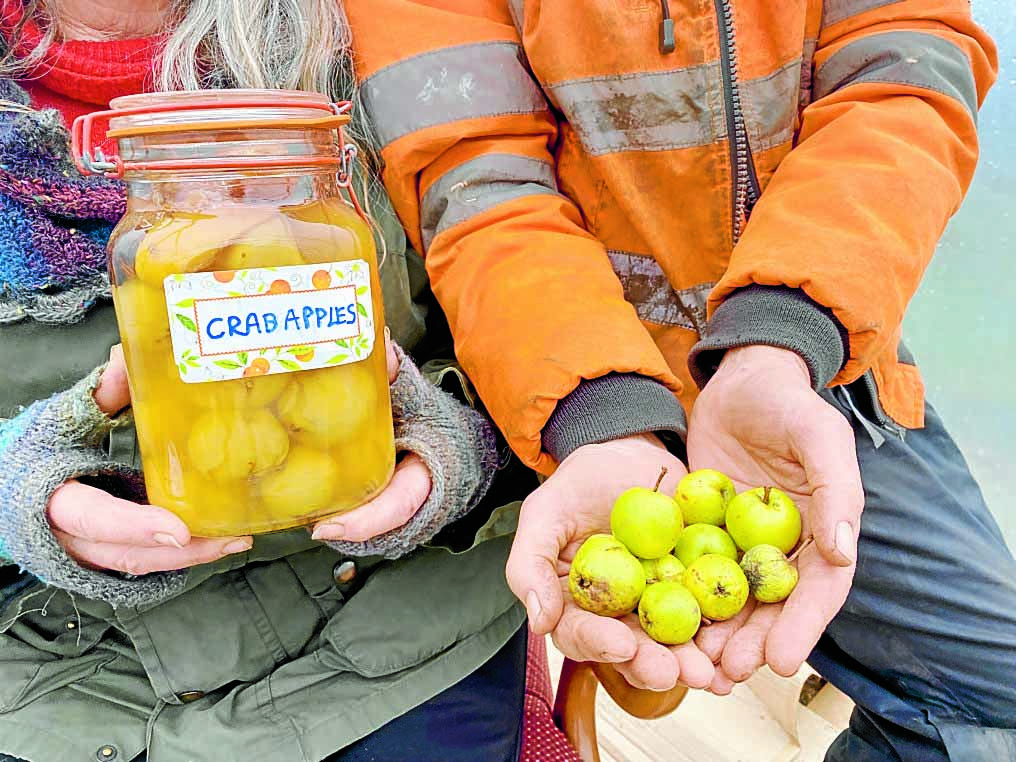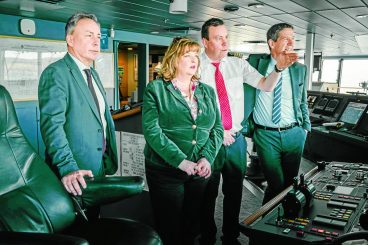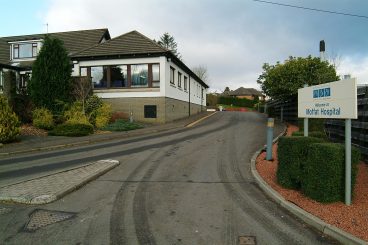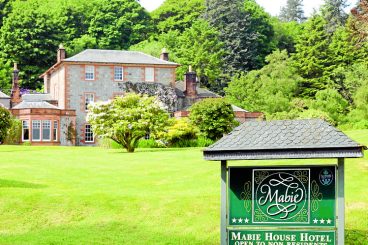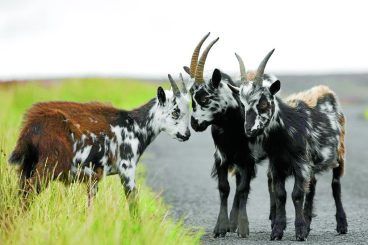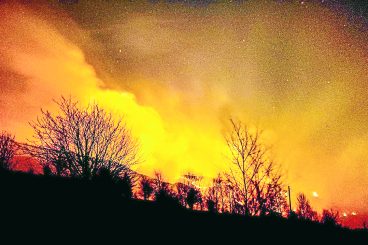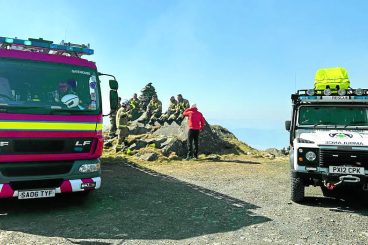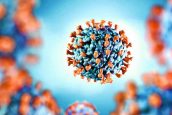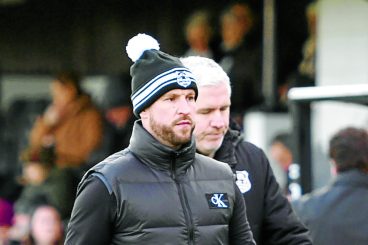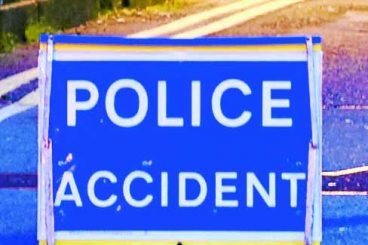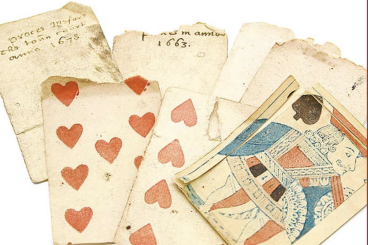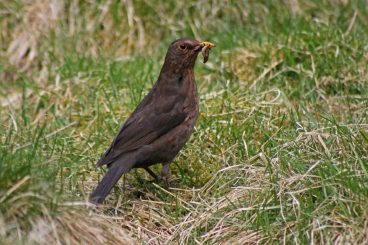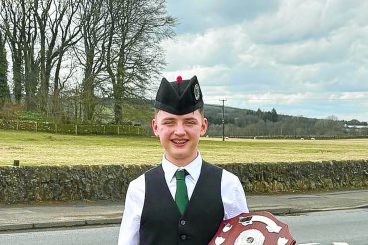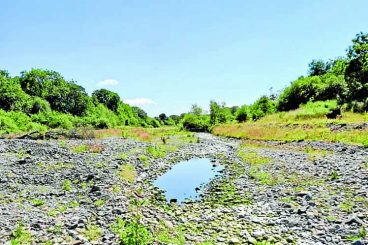Only one, the crab apple (Malus Sylvestris), is actually native to the UK, and it is under threat.
And Galloway has a well-kept secret, it has a special native crab apple trees – hardy, long lived and much-loved scrubby pasture trees. They are found in rough pasture on hills, along the coast along riverbanks and sometimes in gardens. They bear beautiful pink blossom in spring, in autumn golden globes of fruit, locally known as ‘scroggies’ that sometimes hang on throughout the winter.
Galloway, together with a couple of other areas in the UK, has an exceptionally high level of native genetic material in its crab apple stock – likely due to the remote nature of the current treestock and the reduced chance of cross pollination with other apple species.
However not all of the crab apple trees are true natives, some have been cross pollinated with domestic apples and ornamental varieties. This puts the survival of the true ‘natives’ under threat.
As such, a project is now underway to identify the area’s native crab apples and grow the next generation of trees and preserve the native species.
It is being led by the South West Scotland Community Woodlands Trust, who are on a mission to find Galloway’s true natives through DNA testing and use this to grow more trees,
When these trees have been identified, pips will be planted and growing will initially be encouraged in a number of tree nurseries in the area. These will then be planted out in a variety of locations up and down the Ken/Dee valley – with sites varying from lowland through to forest plantings, and on remote hill and coastal locations to ensure the longevity of the species.
Volunteers will be needed to locate wild Crab Apple trees in the Galloway Glens catchment area and monitor the dates when it blossoms, the length of yearly growth, the quantity of fruit produced and the taste of the apples.
Jools Cox and Jenny Stephenson are coordinating the initiative and Jools said: “This project seeks to preserve our native crab apple species, which is reason enough, but also should be considered against broader topics such as food security and climate change. If our population of native trees get diseased or suffer effects of climate change, we may need a native seed bank to regenerate our domestic stock and could be an important factor in future food security.”
If you have some information, or the location of potentially native crab apples, ideally with grid or GPS references, contact [email protected].
The name ‘crab’ is thought to come from the Norse skab meaning small and rough tree closely akin to the Scots ‘scribe’ and ‘scrub’ and in willow scrub.





